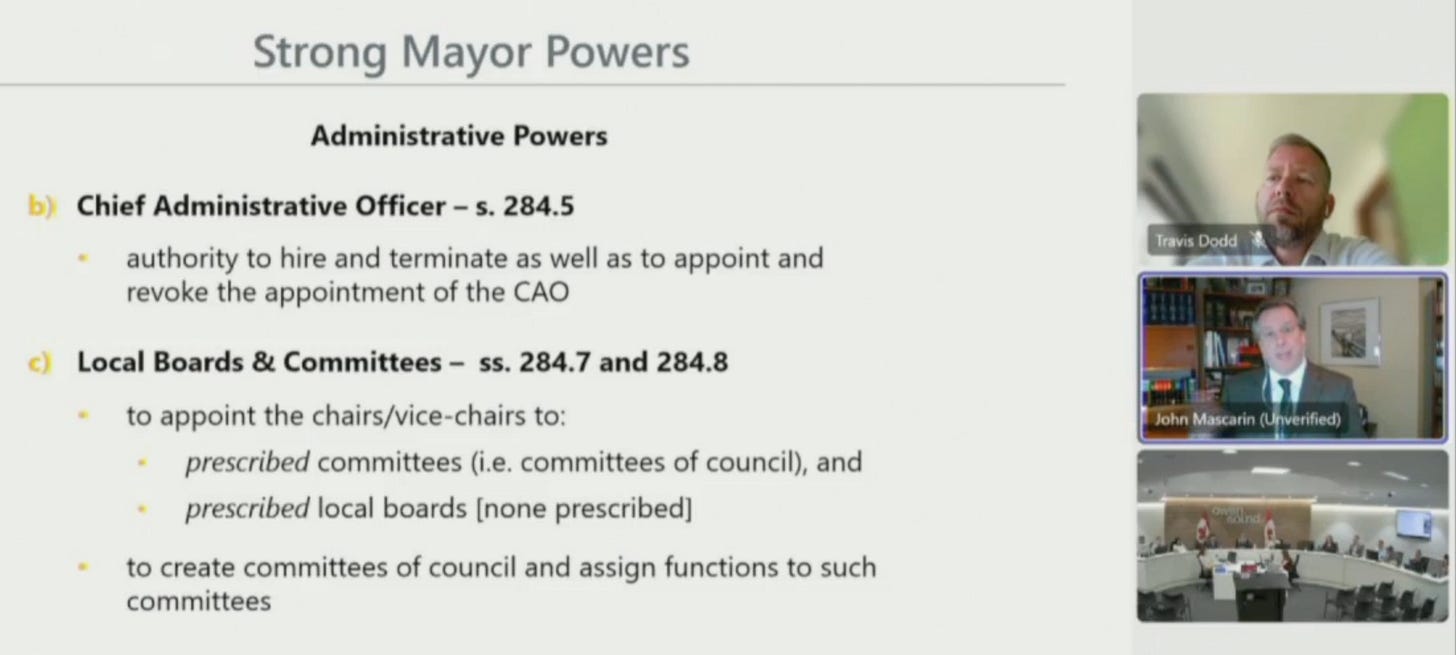Opinion: Why Was It So Hard for Owen Sound Council to Take a Stand on Strong Mayor Powers?
Owen Sound Council said no to strong mayor powers — but only after delays, legal advice, and 30 questions. What’s the cost of this way of governing?
EDITORIAL OPINION
On April 28, Owen Sound City Council voted unanimously in a special meeting to ask the province to remove the city from the list of municipalities set to receive “strong mayor” powers on May 1.
First introduced in Toronto and Ottawa in 2022, strong mayor powers have s…
Keep reading with a 7-day free trial
Subscribe to The Owen Sound Current to keep reading this post and get 7 days of free access to the full post archives.



